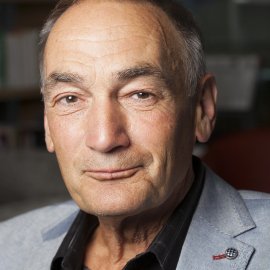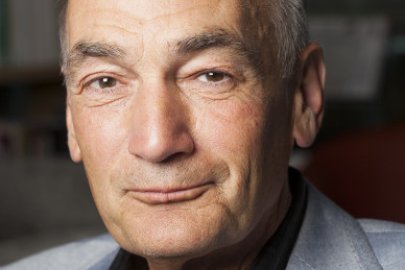International Relations, Victoria University of Wellington, New Zealand

Janvier à juin 2019 et octobre à décembre 2019
After studies in science and literature, including a doctorate on Denis Diderot, Adrian Macey took up a career in the Ministry of Foreign Affairs. Early in his career at the Ministry he spent a year at the ENA (Promotion Pierre Mendès France) the first New Zealander to attend ENA. He had postings in Paris, Apia, Geneva and Bangkok, serving as ambassador in Bankgok and Paris. In Wellington he was director of human resources for four years, and later Chief Trade Negotiator, responsible for the WTO and all bilateral and multilateral trade negotiations for New Zealand. In 2006 he was appointed New Zealand’s first climate change ambassador. He left the Ministry in 2010 to serve a vice-chair then chair of the Kyoto Protocol negotiations. Since 2010 he has worked at Victoria University of Wellington as Adjunct Professor, New Zealand Climate Change Research Institute (School of Geography and Earth Sciences) and Senior Associate, Institute for Governance and Policy Studies, School of Government. He is also Chair of a think tank, the New Zealand Centre for Global Studies. He has served as member and chair on several GATT and WTO dispute settlement panels. His research interests include climate change policy, the science-policy connections, international governance, and trade.
The evolution of a new governance model through the challenge of climate change
The project’s starting point will be the 2015 Paris Agreement on climate change. It will seek to consolidate and further explore themes worked on in recent years. The project will be centred on three themes:
1 The role of science (how the findings of the IPCC have been assimilated and used by political leaders and decision-makers, and the obstacles to implementation of appropriate measures. The relationship between ‘policy relevant’ and ‘policy prescriptive’, in the terminology of the IPCC);
2 The place of non-state actors in the new model represented by the Agreement (business, local government, cities and civil society);
3 The new model of global governance of climate that is emerging. (Significance for the evolution of international law, relevance to other questions stemming from the common heritage of humankind, non-state actors, questions relating to responsibility, new alliances of countries).
The idea is to lead to a synthesis which will be useful both in climate change and other global challenges.
MACEY, Adrian. Climate Change: Governance Challenges for Copenhagen, in Global Governance Vol. 15 No.4 Oct.-Dec. 2009
FRAME, David; MACEY, Adrian; ALLEN,Myles. Cumulative Emissions and Climate Policy in Nature Geoscience September 2014
MACEY, Adrian. Dispute Settlement in TRIPs: a Two-edged Sword, in Watal and Taubman (eds): The Making of the TRIPs Agreement. Personal Insights from the Uruguay Round Negotiations, World Trade Organization, 2015
MACEY, Adrian. The Paris Climate Change Agreement: text and contexts, in Policy Quarterly Volume 12 issue 1 February 2016
MACEY, Adrian.The Principle of Responsibility in the Global Response to Climate Change: Origins and Evolution. dans Martin, B et al (eds), ResponsAbility. Law and Governance for Living Well with the Earth, Routledge 2018
MACEY, Adrian. ALLEN, M et al, A solution to the misrepresentations of CO2-equivalent emissions of short-lived climate pollutants under ambitious mitigation, NPJ Climate and Atmospheric Science (2018) 16
